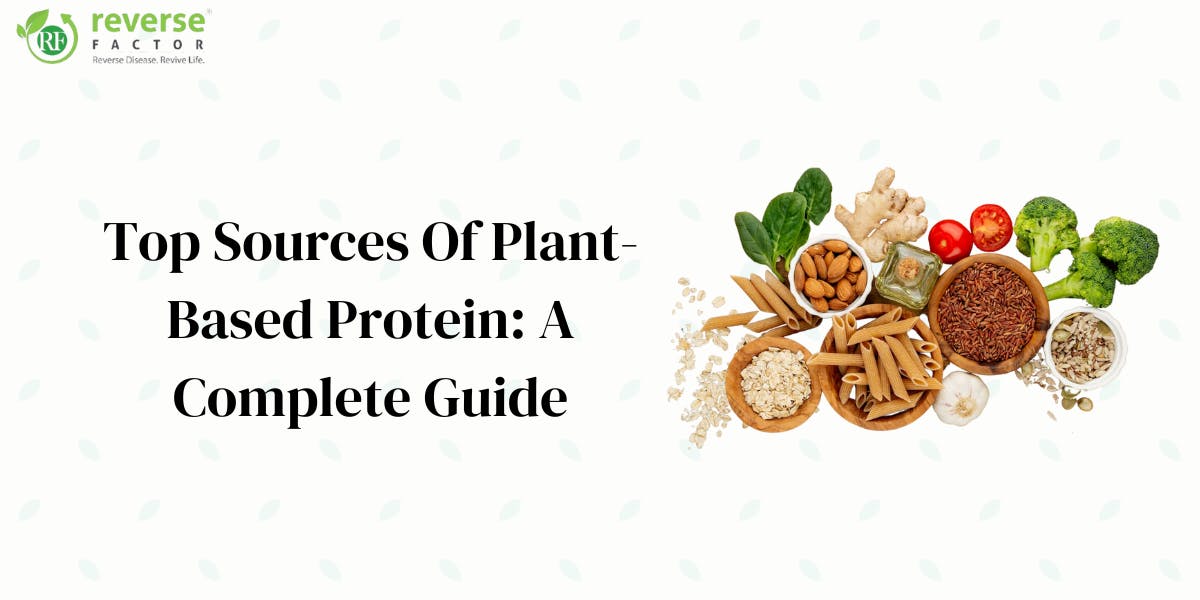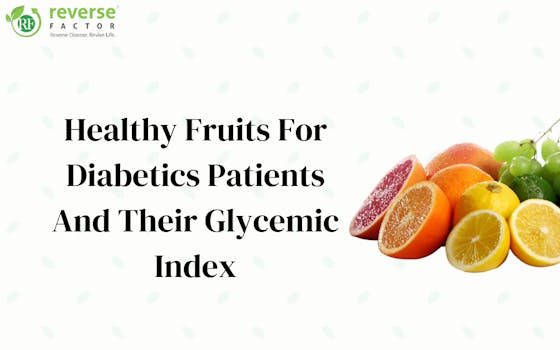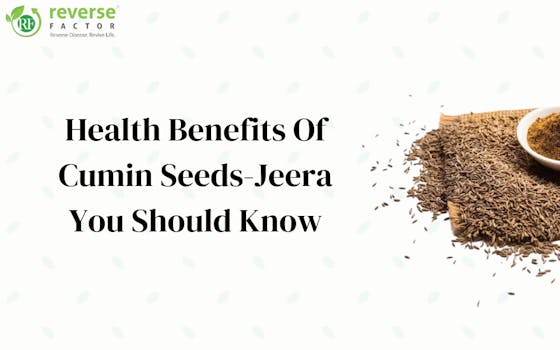When it comes to protein, people often think about foods like a juicy steak or a boiled egg. However, it's crucial to understand that protein sources don't just come from animal-based food sources. Many plant-based options boast an impressive amount of protein as well. Research has shown that consuming plant-based proteins can prevent diabetes and cancer.
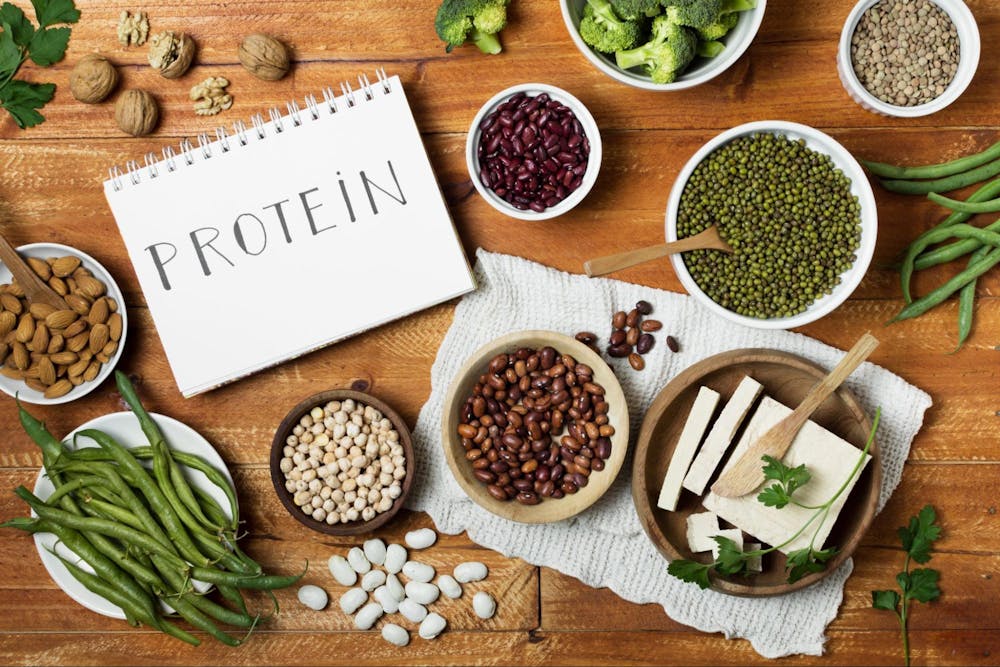
Plant-based protein plays an important role in regulating high sugar and blood pressure. That’s why it is included in the diabetes reversal diet plan. Therefore, you should also incorporate plant-based protein foods into your daily diet. This article offers everything you need, whether your goal is to switch to a plant-based diet or you just want to add more plant protein to your meals. So, get ready to explore various sources of plant based protein that will nourish your body and satisfy your taste buds. Let's dive in!
Recommended: Discerning Which Fruits Is Not Good For Pregnancy - Reverse Factor
Why Do You Need Protein?
Approximately 17% of our body weight is made up of protein which makes it an essential part of our diet. Our muscles, skin, and internal organs, including the heart and brain, as well as our eyes, hair, and nails, are all made of protein. It acts as a basic building block for our body. Protein is also essential for maintaining our immune system. It helps to produce antibodies that fight infections. Furthermore, protein helps regulate blood sugar levels, and improves energy production.
The breakdown of protein-rich foods yields 22 natural amino acids, which are the key constituents of protein. Among these amino acids, nine are considered essential because our bodies cannot produce them. It increases the necessity of their intake from dietary sources. In addition, protein is a great source of several vitamins and minerals, including zinc and B vitamins. Thus, if you want to achieve ideal nutrition and improve your well-being, you must look for sources of plant protein.
Must Read: Promote Your Health With An Indian Diet Chart for Diabetic Patient
Importance Of Plant Based Sources Of Protein In Your Daily Diet
Adding sources of plant food into your daily diet holds significant importance for your overall health. These plant-based foods that are high in protein, such as grains, legumes, nuts, and seeds. It provides essential nutrients that support various functions in your body. Most plant protein sources are low in cholesterol and saturated fats which makes them heart-healthy choices. They also have high fiber, vitamin, mineral, and antioxidants that help with digestion, and boost immunity.
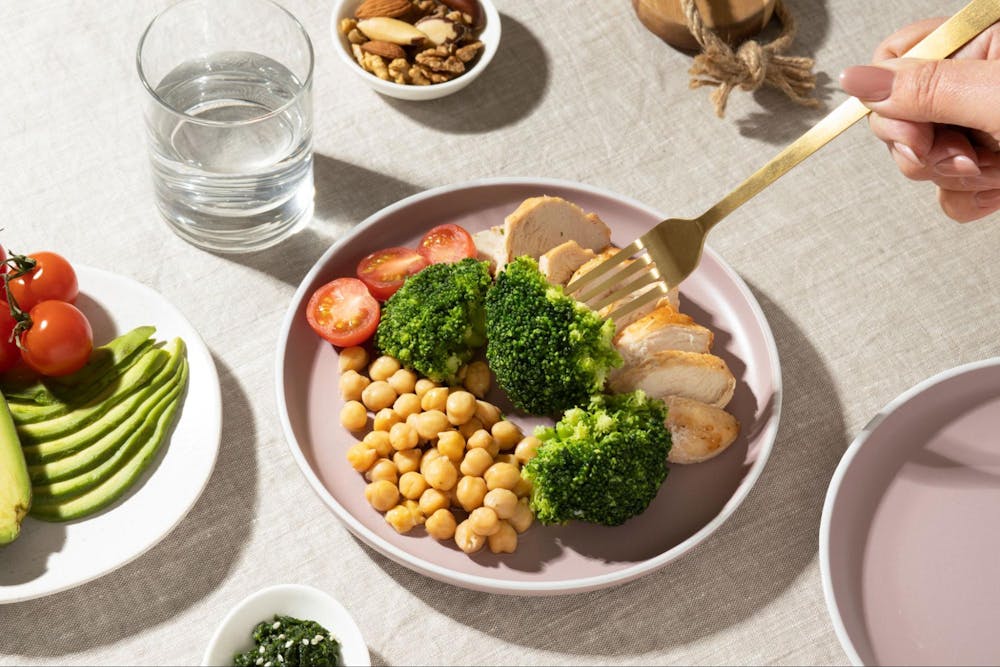
See More: Foods That Boost the Immune System: Top 18 Foods to Eat!
How Much Plant Based Protein Do You Need?
Protein plays a crucial role in the formation of muscles, tendons, and skin tissues. It also helps your immune system by producing antibodies that fight infections. The recommended daily protein intake for healthy people is around 0.36 grams per pound of body weight or 54 grams for a person weighing 150 pounds. While the majority of people don't need to monitor their protein consumption. However, it's still crucial to pay attention to your body's signals. Regular weakness, fatigue, or feeling hungry right after meals may be signs that you aren't getting enough protein. You should consult a certified dietician who can suggest you the best sources of plant based protein as per your body needs.
Benefits Of Consuming High Protein Vegetarian Diet
A high protein vegan diet has several advantages for general health and well-being. Some of the key benefits include:
Adequate Protein Intake
A high protein vegetarian diet ensures that you get enough protein without having to rely on animal products. It offers the amino acids required for tissue repair, muscular growth, and body function maintenance.
Weight Management
Protein-rich foods can help create feelings of fullness which may help in weight management. There are many high protein vegetarian diet for weight loss that can help control appetite and reduce your cravings.
Heart Health
Plant-based protein sources often include less saturated fat and cholesterol. A protein rich veg food diet can help reduce the risk of heart disease by reducing LDL cholesterol levels.
Digestive Health
Many plant-based protein sources are high in fiber, including legumes, whole grains, and fruits. Fibre helps in digestion, avoids constipation, and promotes healthy gut bacteria.
Disease Prevention
A high protein, plant-based vegetarian diet has been linked to a lower risk of chronic diseases such as heart disease, type 2 diabetes, and obesity. The presence of antioxidants, vitamins, minerals, and phytochemicals contributes to these beneficial effects.
Nutrient Diversity
Plant-based protein sources contain a variety of essential nutrients. It includes vitamin C, vitamin E, folate, potassium, magnesium, iron, and antioxidants.
Top 21 Sources Of Plant Based Protein
Lentils
Lentils are the highest sources of plant based protein. It contains a lot of protein which is essential for our muscles and overall growth. They are an excellent alternative to animal-based proteins for people who follow a vegetarian or vegan diet. Additionally, lentils contain a lot of fiber, which promotes healthy digestion and keeps us feeling fuller for longer. Thus, including lentils in our meals might be a great idea to stay healthy and acquire the necessary protein for our bodies.
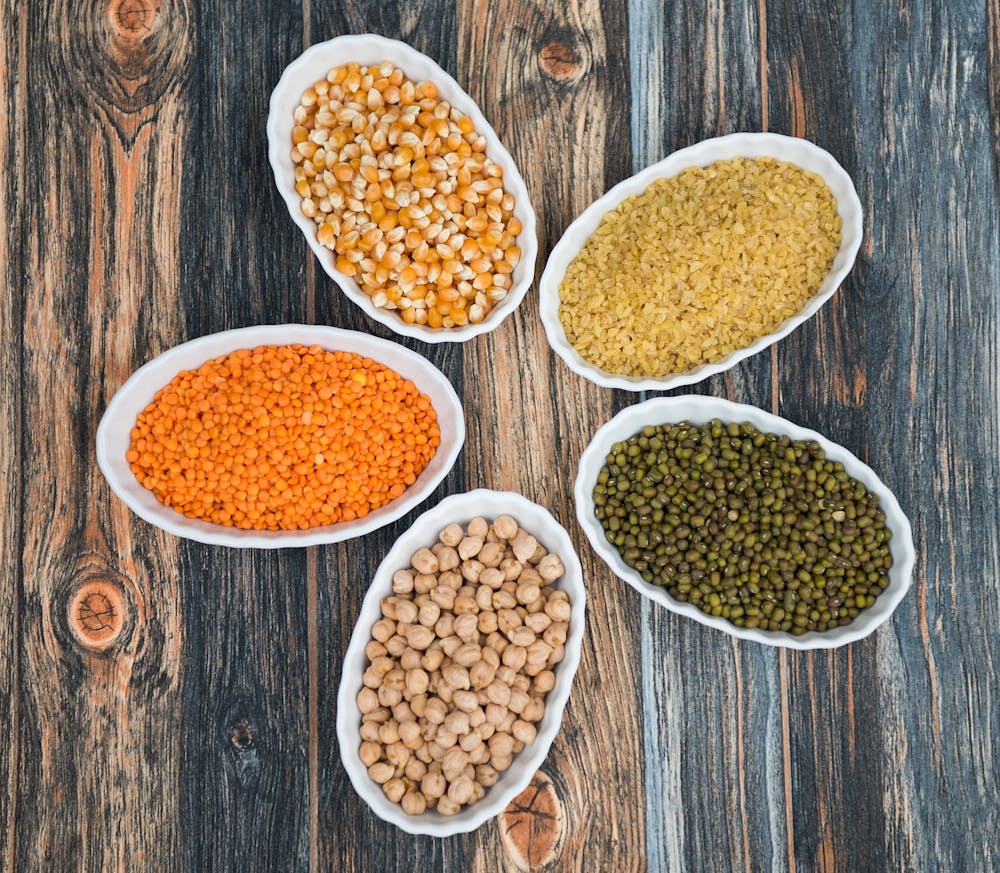
Chickpeas
Chickpeas are considered top vegetarian protein sources. These little legumes, commonly referred to as garbanzo beans, are packed with healthy nutrients. They are rich in protein, which is crucial for building muscle and maintaining general health. According to the United States Department of Agriculture (USDA), a serving size of 1/2 cup of chickpeas has roughly 7.5 grams of protein. Chickpeas are also a wonderful source of fiber, folate, iron, phosphorus, and healthy fats. You can enjoy chickpeas in various ways, such as roasting them for a crispy snack or using them as the main ingredient in delicious Indian curry.
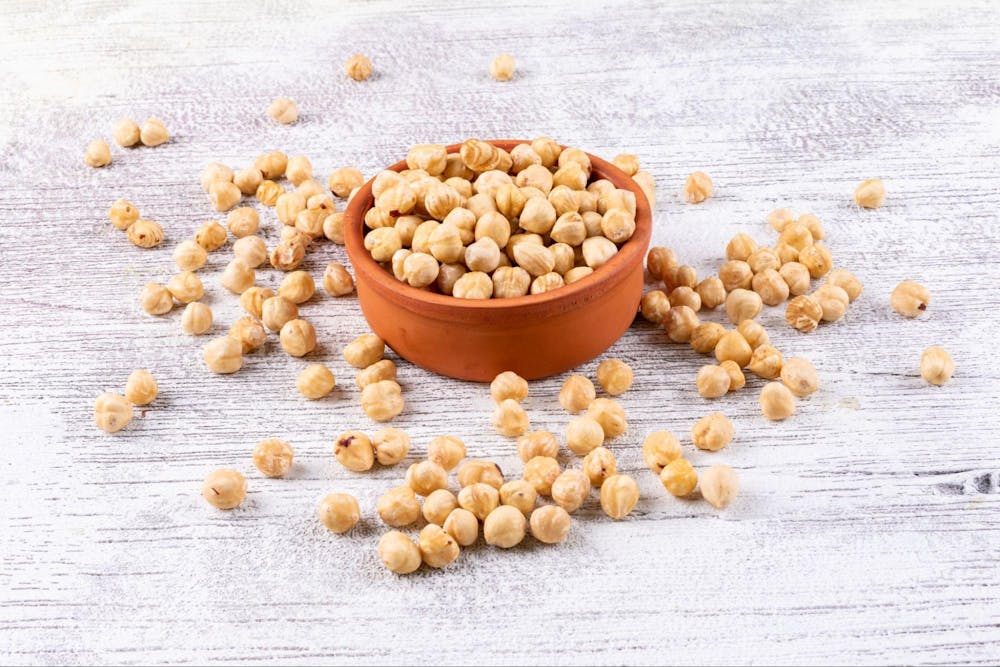
Kidney beans
Kidney beans, also known as rajma, are packed with nutrients that are good for our bodies. Even ½ cup of kidney beans provides a significant amount of protein which can be beneficial for your health. Apart from protein, kidney beans are also high in fiber, iron, folate, and other essential minerals. Consuming kidney beans can decrease your cholesterol level, manage blood sugar, and blood pressure. It is also a high protein vegetarian foods for weight loss. You can add them to salads, soups, and Indian veg curry.
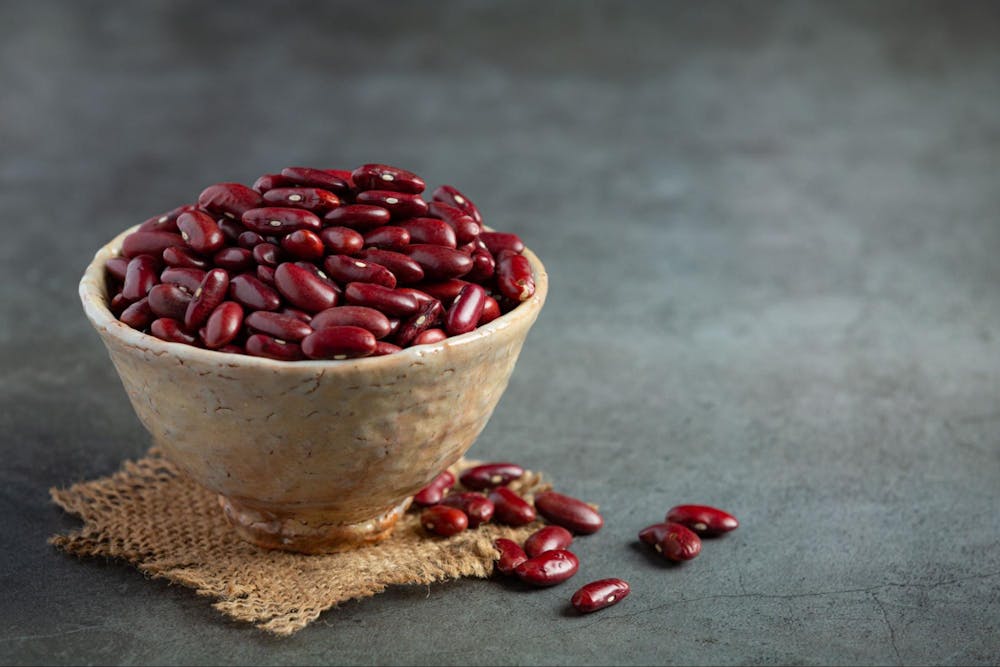
Green peas
Green peas are an excellent source of protein, with over 9 grams of protein per cooked cup. In fact, green peas contain a little bit more protein than a cup of dairy milk. In addition to being a high source of protein in vegetarian diet, green peas are also rich in essential nutrients. More than 25% of your daily requirements for fiber, thiamine, folate, manganese, and vitamins A, C, and K are met by one serving of green peas. They also offer significant amounts of copper, zinc, phosphorus, iron, magnesium, and several B vitamins. This makes peas the best protein rich vegetarian food.
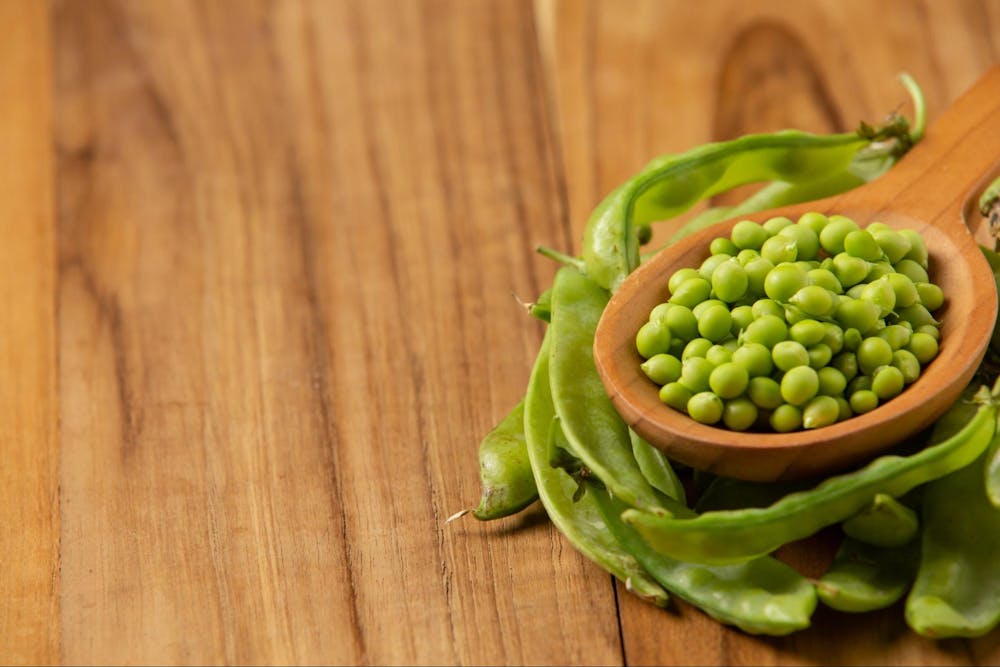
Soybeans
Soybeans are another healthy food option on the list of protein foods for vegetarians. Soybeans also provide other essential nutrients like fiber, iron, calcium, and vitamins. Consuming 2-4 servings of soy foods per day can provide many health benefits associated with soy. So, don’t be afraid to include soy protein as a wholesome food in your protein rich vegetarian diet.
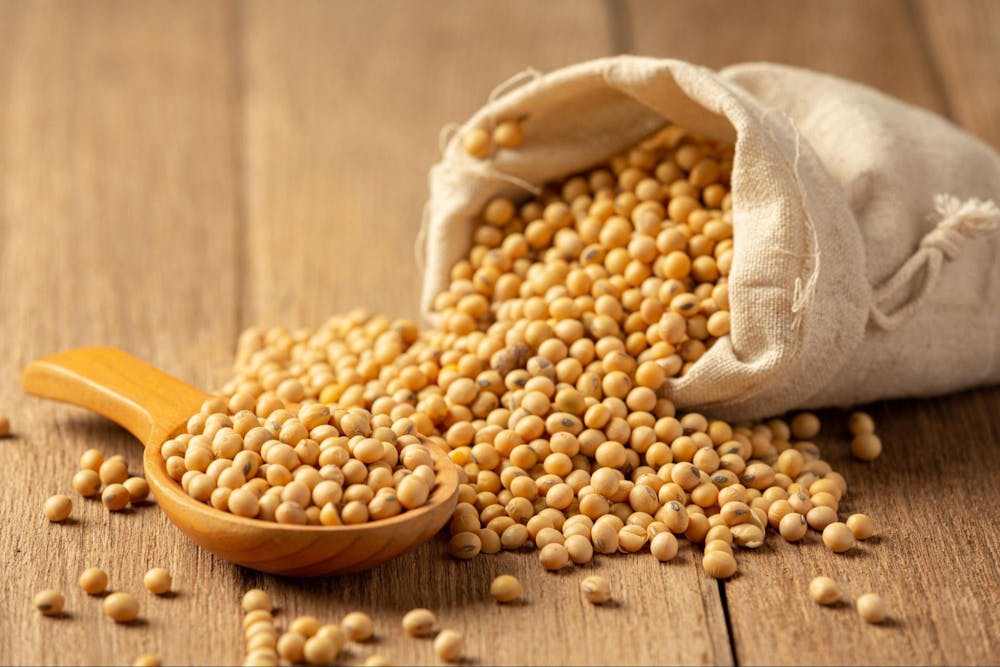
Tofu
There are many ways to include soy in your diet. One of them is tofu which is an excellent meat substitute that contains 9 grams of protein in a 3-ounce serving. Tofu is a heart-healthy option because it is low in cholesterol and saturated fat. Additionally, it has vital nutrients including calcium, iron, and critical amino acids. Tofu can be used in a variety of meals, including stir-fries, salads, soups. Its mild flavor makes it a fantastic addition to any culinary preparation because it can absorb flavors and spices.
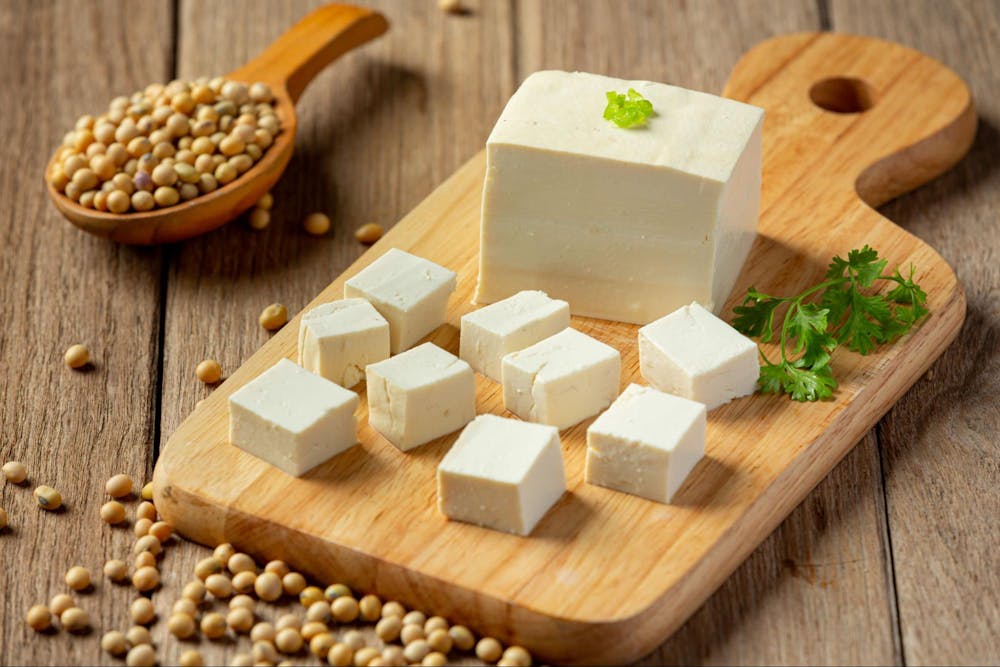
Quinoa
Quinoa is a versatile seed that comes in a variety of colors, including white, red, black, and mixed. In addition to being delicious, these seeds are high calorie vegetarian foods. Cooked quinoa contains over 4g of protein per 100g meal. Quinoa is regarded as the best plant based protein, because it has all 22 of the important amino acids that our bodies need. Quinoa is also a good source of vitamins, minerals, and nutritional fiber.
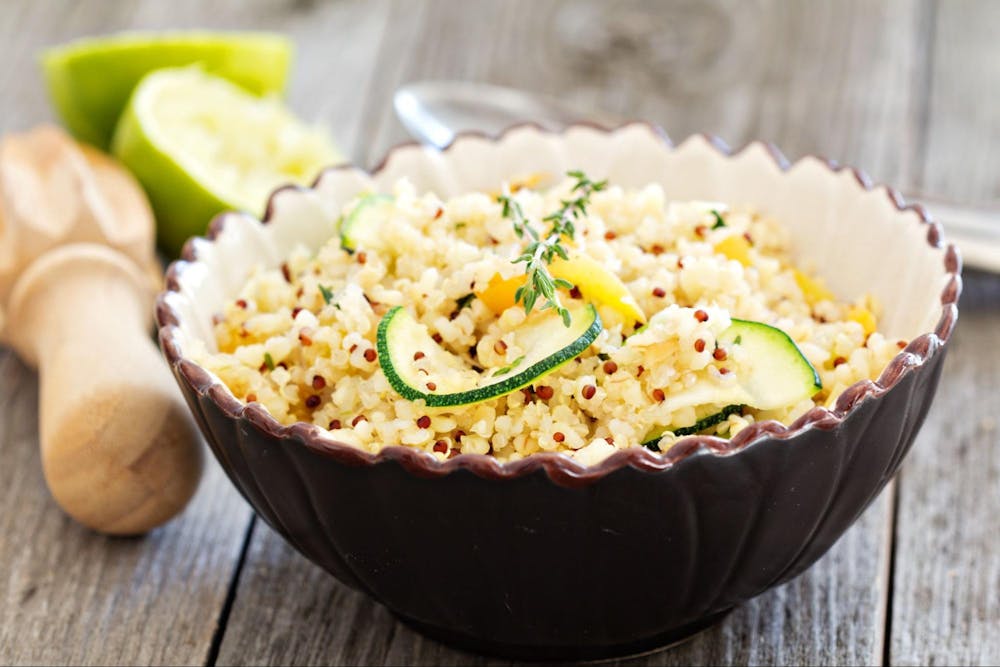
Chia seeds
Chia seeds are a tiny powerhouse when it comes to protein content. Chia seeds contain roughly 2g of protein in just one spoonful. You can improve the protein content of many recipes by adding these healthy seeds. Chia seeds can improve the nutritional value and texture of your meals. So, if you are looking for the best protein diet for vegetarians, you can add them to your daily diet.
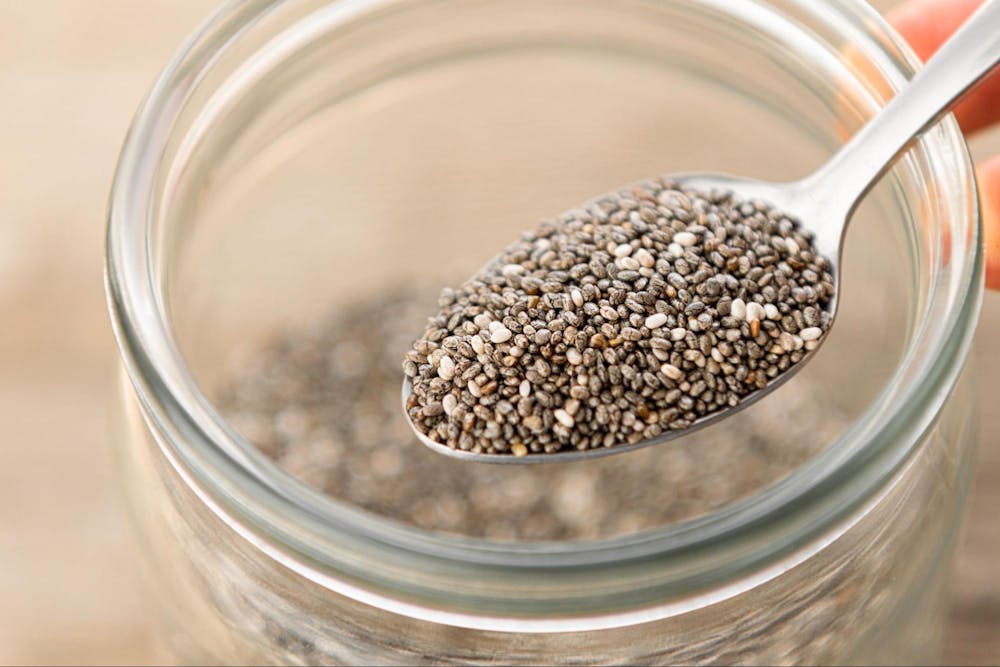
Flaxseeds
Flax seeds are tiny and tasty seeds that provide many health benefits. They are excellent natural protein sources for vegetarians that provide a good amount per serving. Along with protein, flax seeds are rich in essential omega-3 fatty acids, fiber, vitamins, and minerals. You can take these nutrient-dense seeds in a variety of ways, such as flaxseed oil or ground flaxseed.
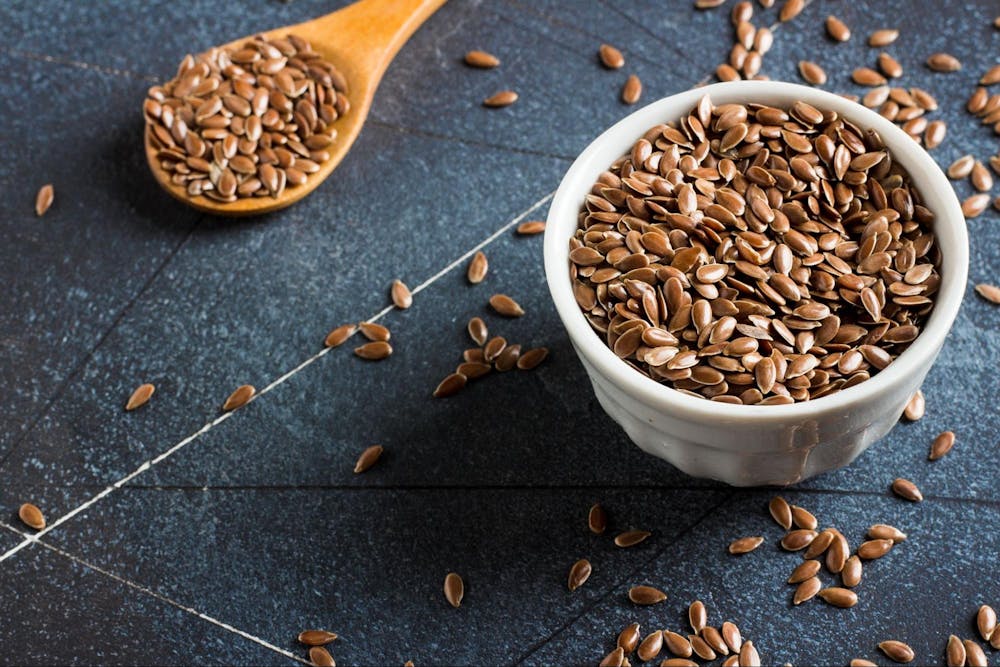
Sesame seeds
These tiny seeds are incredibly nutrient-dense. They are rich in protein, which is essential for our bodies to build and repair tissues. Sesame seeds can help you consume more protein in a vegetarian or vegan diet. You can sprinkle sesame seeds on salads, or baked goods for added crunch and nutrition.
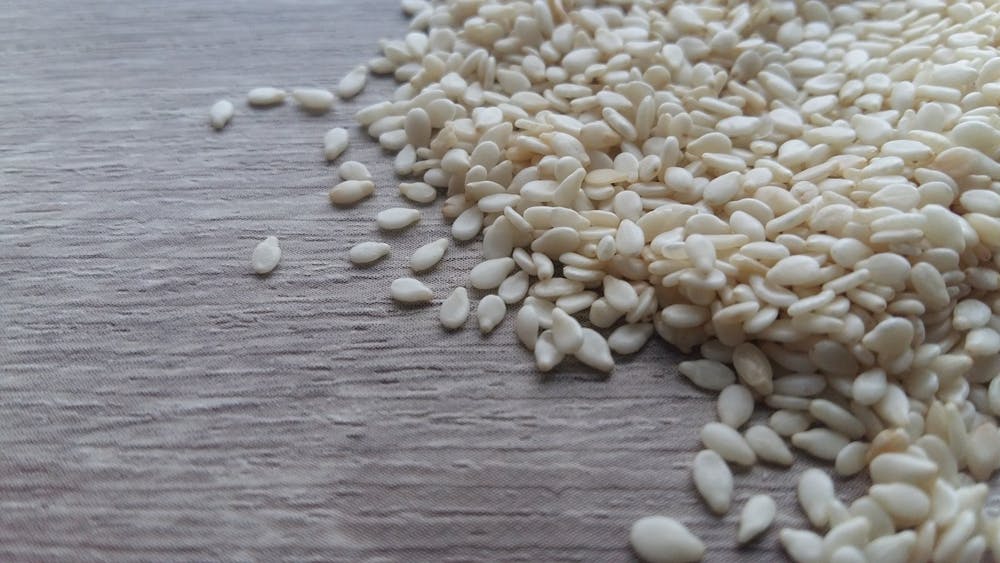
Sprouts
Sprouts are an excellent source of plant-based protein and consuming them can offer you numerous health benefits. These tiny, young plants are incredibly healthy because they are loaded with vital nutrients and enzymes. Sprouts are also a great source of amino acids, which are necessary for muscle growth, healing, and overall body function. They offer a complete protein profile and are easy to digest. By including these tiny protein powerhouses in your meals, you can satisfy your daily protein requirements.
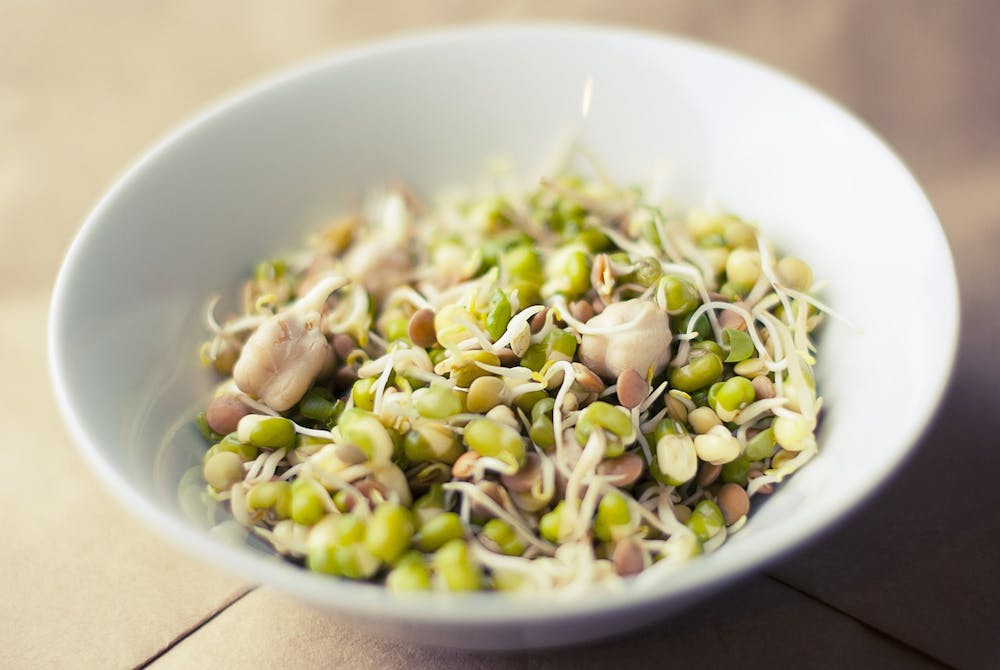
Almonds
Almonds are the best vegetarian fat sources and they also provide protein and other essential nutrients to your body. The monounsaturated fats found in almonds promote heart health.
Almonds can help you achieve your protein requirements while enjoying the advantages of healthy fats. Thus, you should add almonds to your breakfast schedule to include protein in a vegetarian diet.
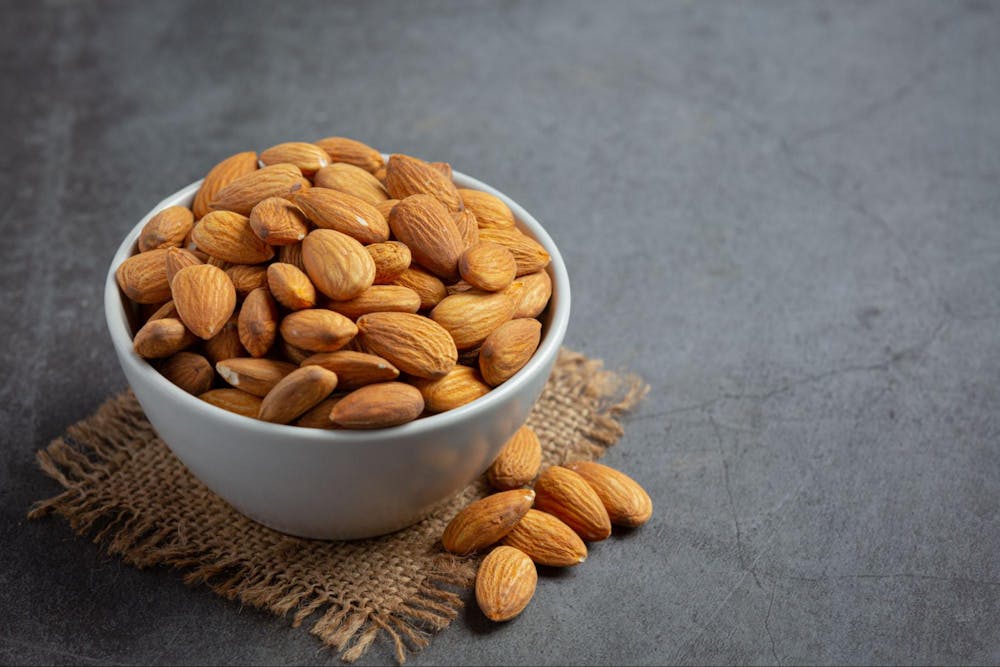
Pistachios
Pistachios are another high protein sources for vegetarians that can support your health. Just like almonds, they also contain monounsaturated fats, fiber, vitamins, and minerals. Pistachios can improve digestion, maintain healthy cholesterol levels, and promote feelings of fullness. However, it's important to be mindful of portion sizes, as they are calorie-dense.
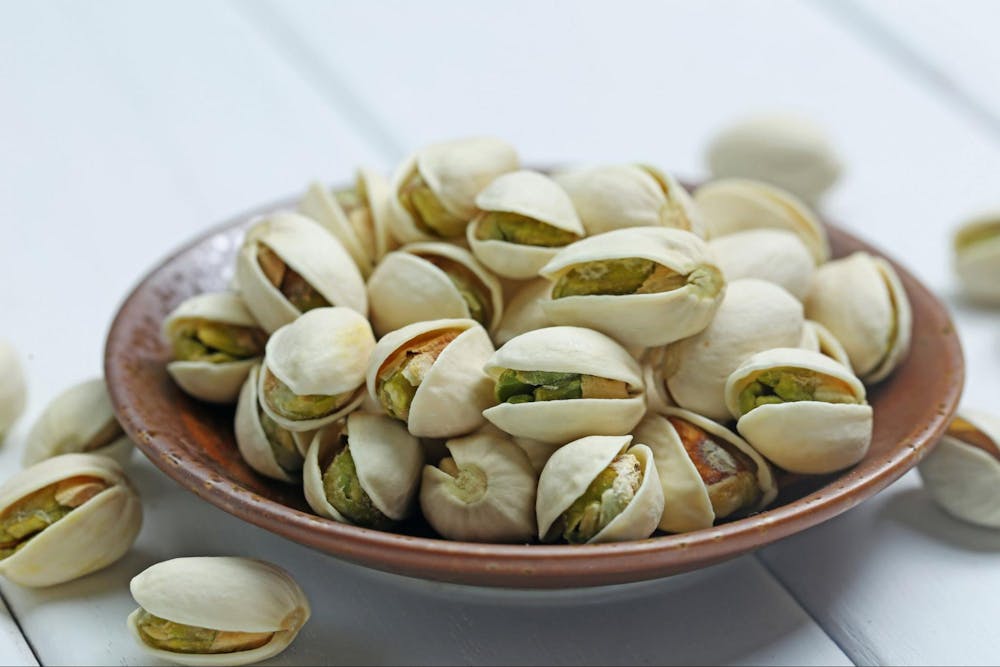
Broccoli
Despite being a vegetable, broccoli has a good amount of protein, making it a great option for those looking for plant-based protein alternatives. In addition to being high in nutrients including fiber, vitamins, and minerals, broccoli is also low in calories. Consuming broccoli can promote digestion and prevent constipation. It is also packed with vitamins and minerals which can help you maintain a strong immune system. Moreover, broccoli can keep you away from heart and cancer disease. So, you should add broccoli to your diet list to enjoy a delicious as well as healthy meal.
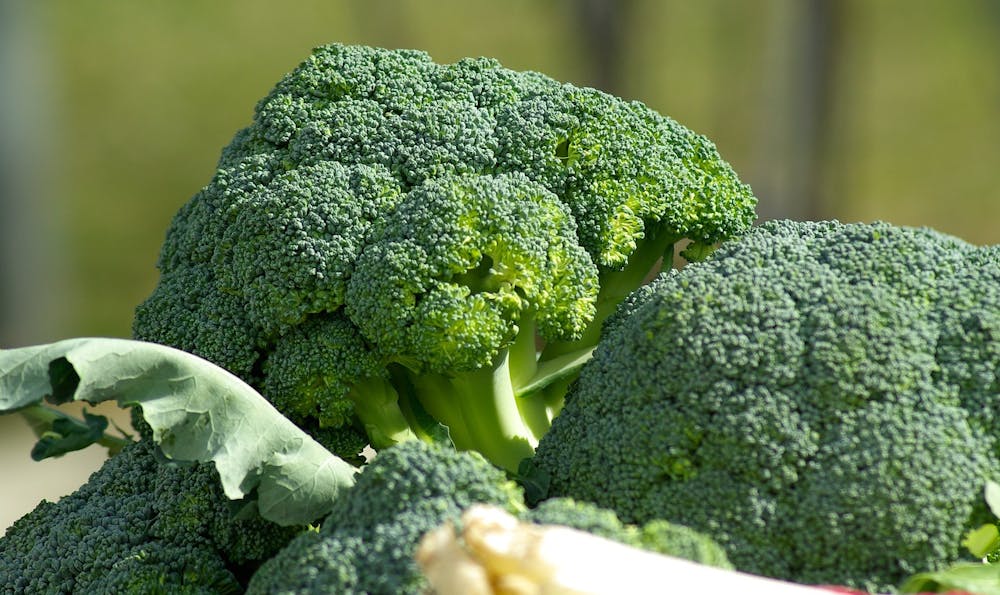
Spinach
This leafy green vegetable not only offers a significant amount of protein but also a wealth of important vitamins and minerals. Furthermore, spinach has few calories and is high in fiber, which encourages a feeling of fullness and helps with digestion. Additionally, spinach has a lot of iron, calcium, vitamin C, and other healthy nutrients. Spinach tastes great in salads, stir-fries, and when it's prepared as a side dish.
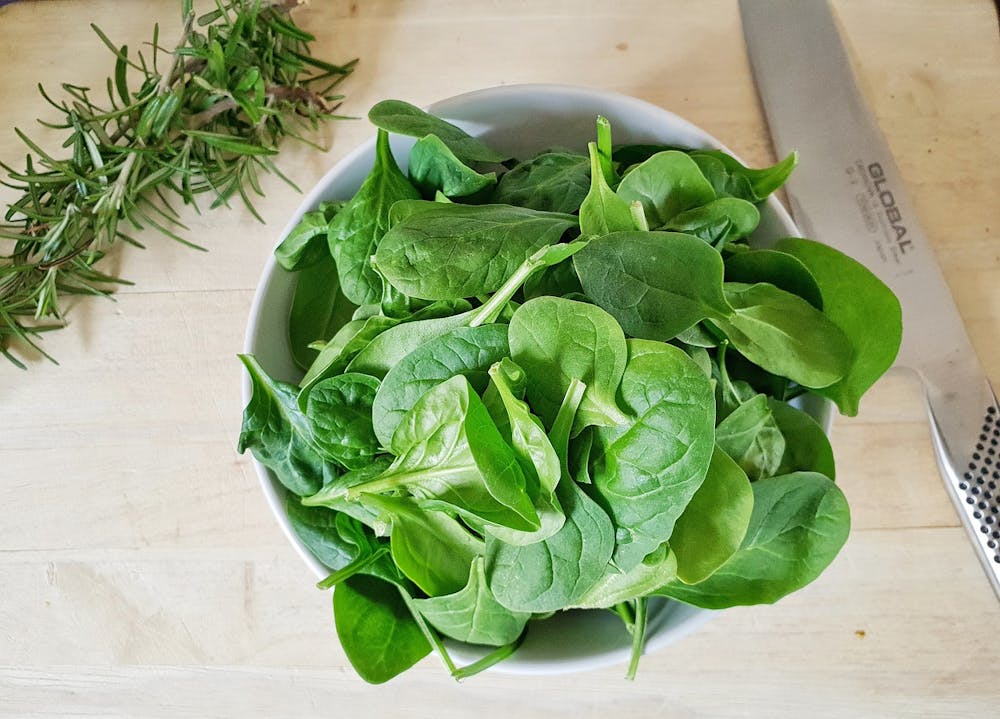
Pumpkin seeds
Pumpkin seeds are one of the healthiest and best plant protein sources. It contains a lot of protein, as well as good fats, fiber, vitamins, and minerals. These include magnesium, iron, zinc, and omega-3 fatty acids, which support various bodily functions. Pumpkin seeds are also well-known for their antioxidant qualities. It can protect your cells from damage caused by free radicals.
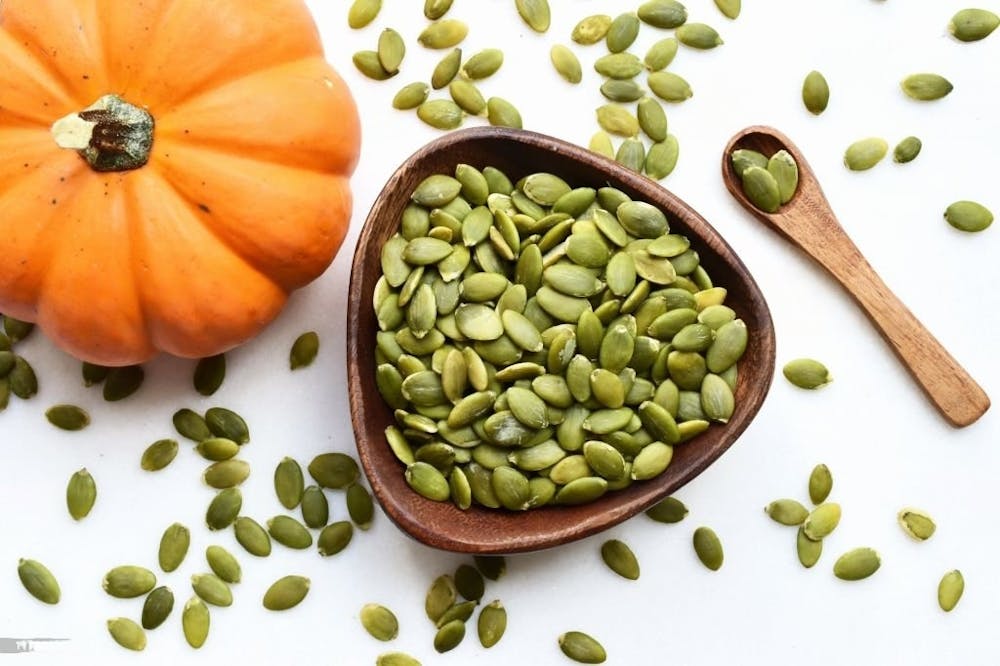
Ragi
Ragi, commonly referred to as finger millet, is regarded as one of the best vegan protein options available. Ragi is a great addition to a vegan diet because it has more protein per serving than other grains. Additionally, it has a lot of fiber, vitamins, and nutrients including calcium, iron, and magnesium. You can consume it in various ways such as porridge, pancakes, or baked foods.
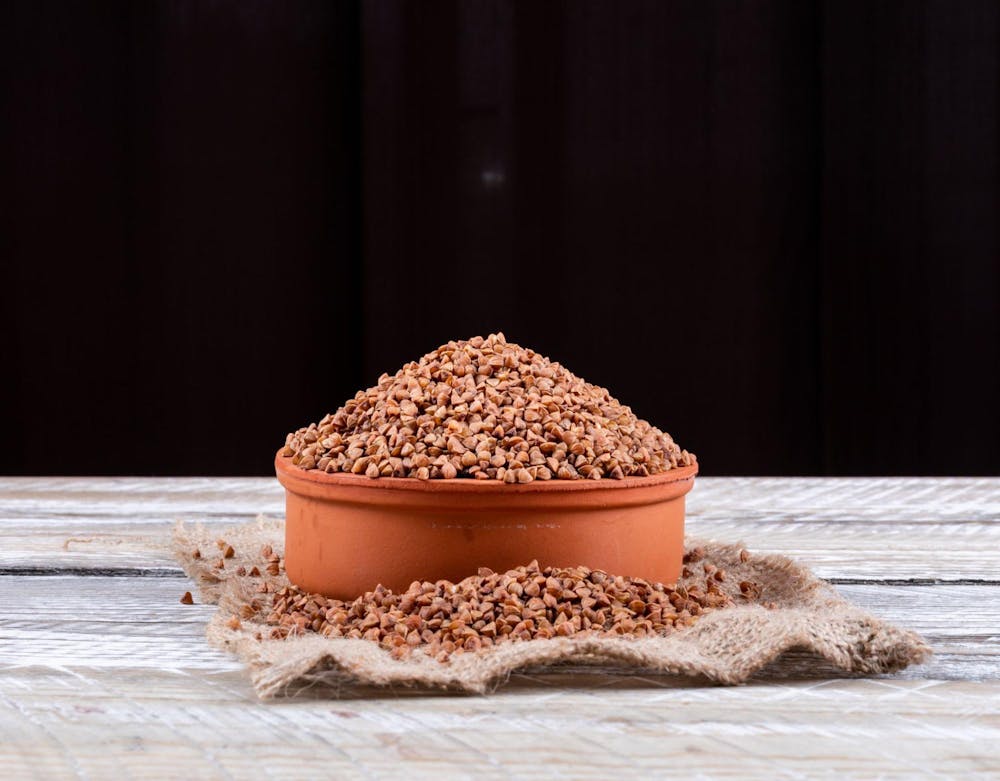
Wheat germ
Wheat germ is one of the best sources of protein in a plant-based diet. It is the nutrient-dense embryo that resides in the middle of a wheat kernel. Despite being small in size, wheat germ is packed with essential nutrients, including protein. Additionally, wheat germ is a good source of fiber, healthy fats, minerals like iron and magnesium, and vitamins like vitamin E and B vitamins.
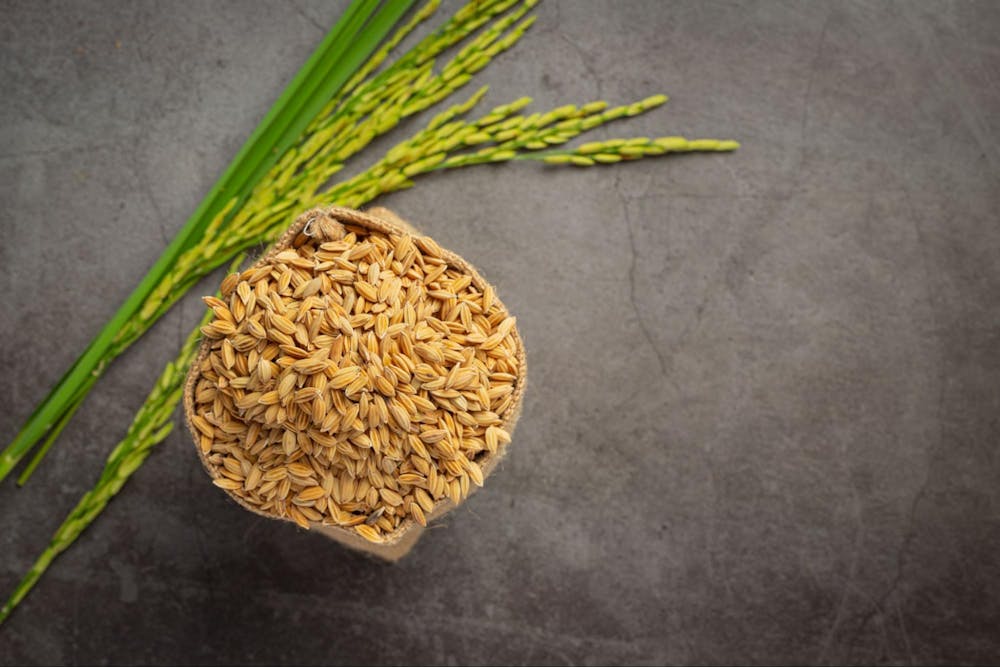
Buckwheat
Although it goes by the name of wheat, buckwheat is actually a seed. It is beneficial for those looking for vegetarian high protein meals because it provides a significant amount of protein. Buckwheat's antioxidant content can reduce the chance of developing diabetes and heart disease. Buckwheat is also gluten-free which makes it a good choice for people with celiac disease or gluten allergies.
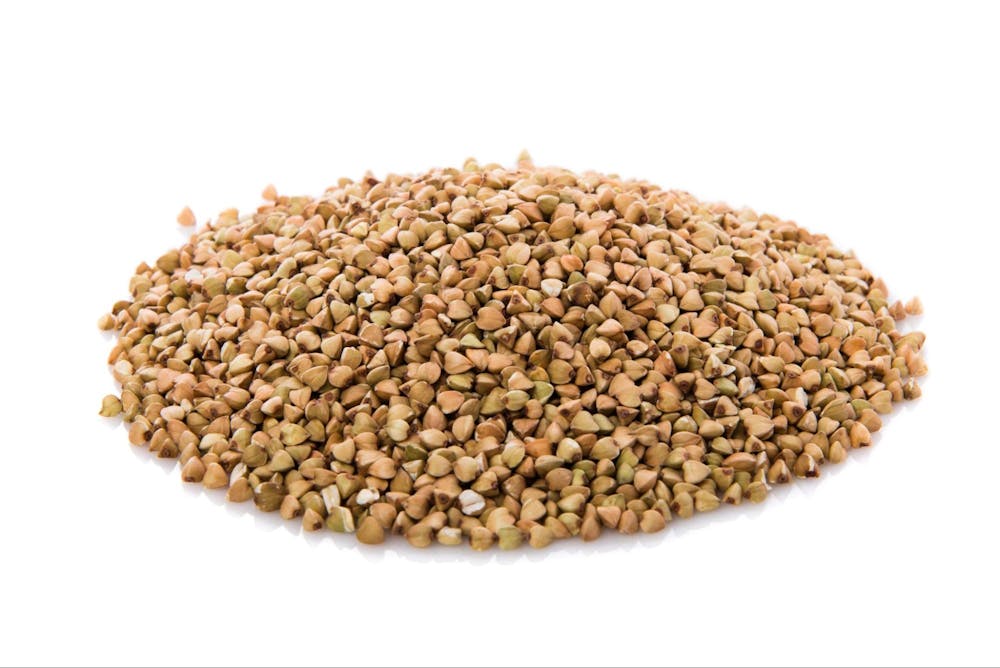
Jowar
If you are looking for a gluten-free protein source then you should consume jowar. These grains are healthy protein foods for vegetarians. It contains essential amino acids to repair your body tissues. Jowar can help digestion, provide you with prolonged energy, and improve your overall well being. You can consume jowar rotis or porridge to enjoy its health benefits.
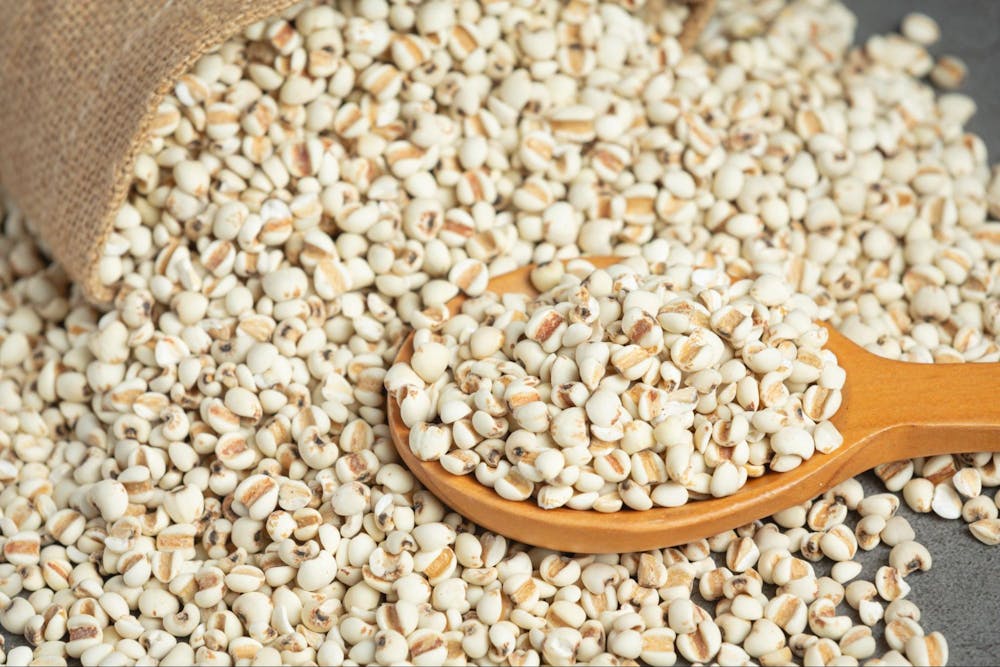
Mushrooms
You can also add mushrooms to your diet as these are the best protein rich foods for vegetarians. Mushrooms are a healthy alternative for weight control because they are low in calories and fat. They are also a good source of antioxidants, vitamins, and minerals, all of which promote good health.
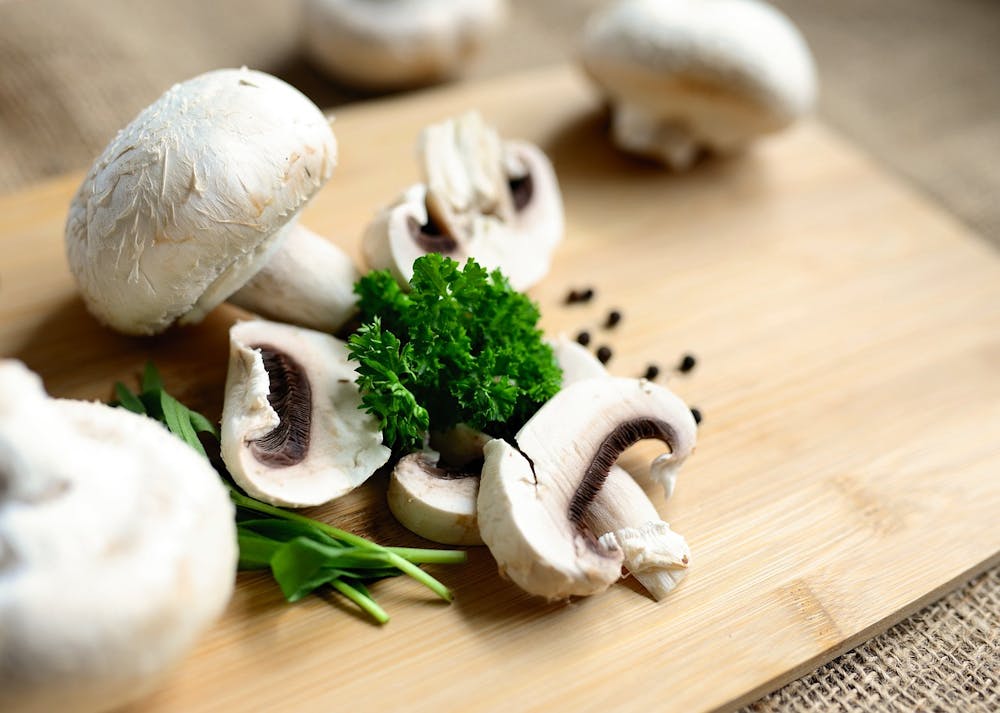
Final Thoughts-
Whether you follow a vegan lifestyle or simply want to add more plant-based protein into your diet, there are plenty of delicious options. By incorporating these plant-based protein sources into your diet, you can live a healthier lifestyle. So, get creative in the kitchen and explore the incredible world of plant-based protein!
Frequently Asked Questions –
What Is The Best Source Of Plant-Based Protein?
The high protein content and amino acid profile of lentils and soybeans make them one of the greatest plant-based protein sources.
What Are 3 Good Sources Of Plant-Based Protein?
The three foods lentils, quinoa, and chickpeas are excellent providers of plant-based protein. They have a high protein content and may be used in many Indian recipes.
What Are The Top 5 Sources Of Protein For A Vegan?
Tofu, lentils, quinoa, chickpeas, and nuts are the top sources of plant based protein.
Name Two Sources Of Plant Protein.
Chia seeds and lentils are good sources of plant based protein. You can add these nutrient-dense foods to your diet to get more plant-based protein.
What Plants Are Good Sources Of Protein?
Soybeans are particularly high in protein, making them the best vegan protein sources.
How Can I Increase Plant Protein In My Diet?
Including foods like beans, tofu, quinoa, nuts, and seeds in your daily meals will help you consume more plant protein.
Which Fruit Is Highest In Protein?
One cup of guava has roughly 2.6 grams of protein, making it the best high-protein vegan fruit.
Which Pulses Are Rich In Protein?
Split peas, chickpeas, black lentils, green lentils, and kidney beans are the best pulses to consume for protein sources.
Can We Take Plant Protein Daily?
Yes, plant protein can be consumed daily as part of a healthy diet. It supports general well-being, and supplies necessary amino acids.
Do Almonds Have Protein?
Yes, almonds are a healthy plant-based protein choice and include about 6 grams of protein per ounce.
Which Indian Dal Has Highest Protein?
Moong dal has one of the highest protein contents with approximately 24 grams of protein per 100 grams.
Can Plant Protein Build Muscle?
Yes, plant protein can help with muscle growth when consumed in sufficient amounts and paired with physical activity.
Is Plant Protein Good For Hair?
High protein vegetarian diet provides amino acids, vitamins, and minerals that promotes the growth of hair.
Which Indian Vegetable Has More Protein?
Spinach is considered the best food for protein in the veg diet. It provides approximately 2.9 grams of protein per 100 grams.
Which Plant Protein Is Best For Muscle Growth?
Soy protein is considered one of the best plant-based proteins for muscle growth. It contains a complete amino acid profile and has been shown to promote muscle protein synthesis and recovery.
Which Is The Richest Source Of Plant Protein?
Soybean and lentils are the rich source of protein for vegetarians.
